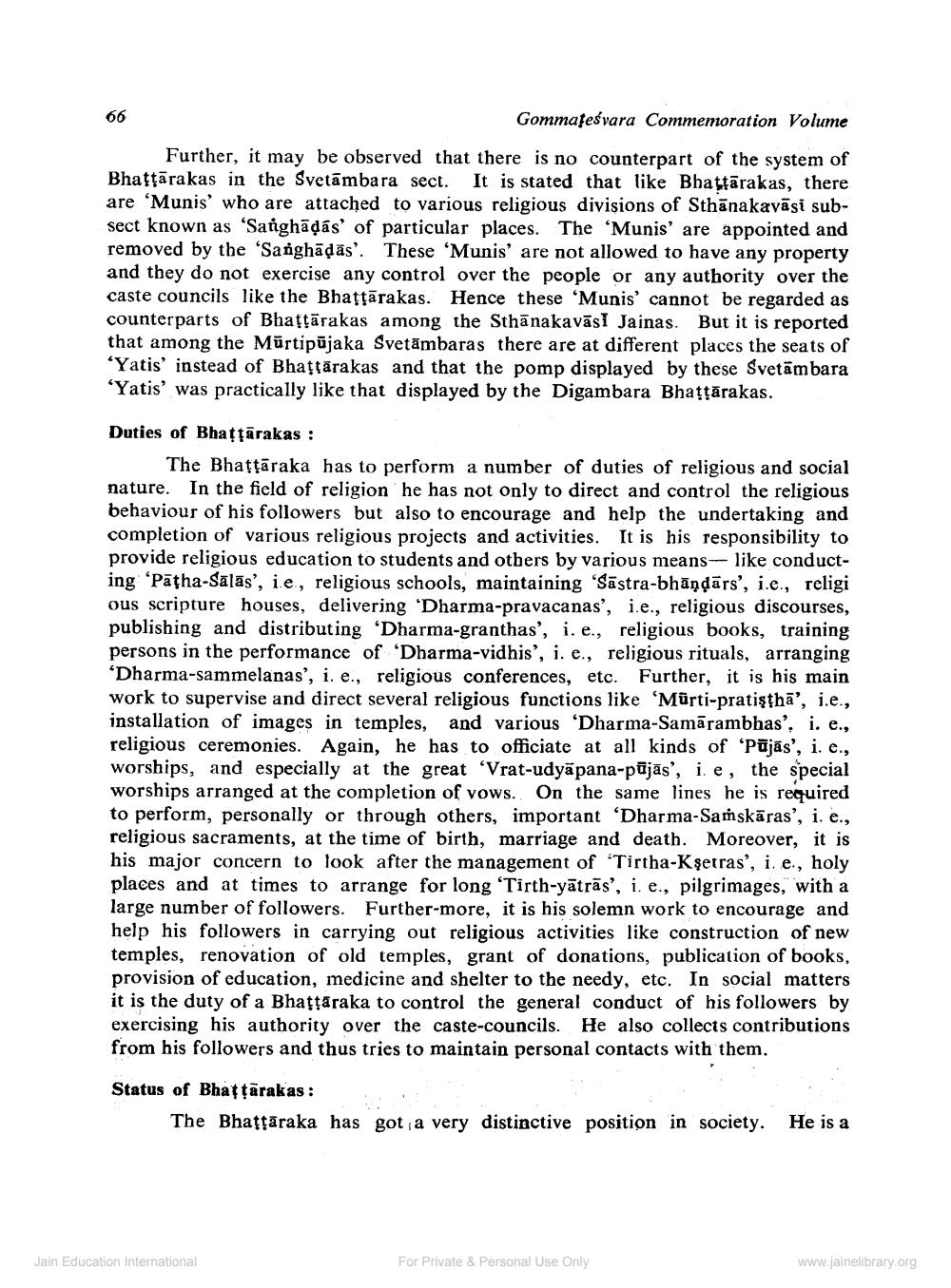________________
66
Gommafeśvara Commemoration Volume
Further, it may be observed that there is no counterpart of the system of Bhattārakas in the Svetāmbara sect. It is stated that like Bhattārakas, there are 'Munis' who are attached to various religious divisions of Sthānakavāsi subsect known as 'Sarghāļās' of particular places. The 'Munis' are appointed and removed by the 'Sanghāļās'. These 'Munis' are not allowed to have any property and they do not exercise any control over the people or any authority over the caste councils like the Bhattārakas. Hence these 'Munis' cannot be regarded as counterparts of Bhattārakas among the Sthānakavāsi Jainas. But it is reported that among the Mürtipūjaka Svetāmbaras there are at different places the seats of “Yatis' instead of Bhattārakas and that the pomp displayed by these Svetämbara ‘Yatis' was practically like that displayed by the Digambara Bhattārakas.
Duties of Bhattārakas :
The Bhattāraka has to perform a number of duties of religious and social nature. In the field of religion he has not only to direct and control the religious behaviour of his followers but also to encourage and help the undertaking and completion of various religious projects and activities. It is his responsibility to provide religious education to students and others by various means -- like conducting 'Patha-Sālās', ie, religious schools, maintaining 'Sastra-bhāņdārs', i.e., religi ous scripture houses, delivering 'Dharma-pravacanas', i.e., religious discourses, publishing and distributing 'Dharma-granthas', i.e., religious books, training persons in the performance of 'Dharma-vidhis', i. e., religious rituals, arranging “Dharma-sammelanas', i. e., religious conferences, etc. Further, it is his main work to supervise and direct several religious functions like 'Mürti-pratişthā', i.e., installation of images in temples, and various 'Dharma-Samārambhas', i. e., religious ceremonies. Again, he has to officiate at all kinds of “Pūjās', i. e., worships, and especially at the great ‘Vrat-udyāpana-pājās', ie, the special worships arranged at the completion of vows. On the same lines he is required to perform, personally or through others, important 'Dharma-Samskāras', i. e., religious sacraments, at the time of birth, marriage and death. Moreover, it is his major concern to look after the management of 'Tirtha-Kşetras', i.e., holy places and at times to arrange for long 'Tirth-yātrās', i. e., pilgrimages, with a large number of followers. Further-more, it is his solemn work to encourage and help his followers in carrying out religious activities like construction of new temples, renovation of old temples, grant of donations, publication of books, provision of education, medicine and shelter to the needy, etc. In social matters it is the duty of a Bhattaraka to control the general conduct of his followers by exercising his authority over the caste-councils. He also collects contributions from his followers and thus tries to maintain personal contacts with them.
Status of Bhattārakas :
The Bhattāraka has got a very distinctive position in society. He is a
Jain Education International
For Private & Personal Use Only
www.jainelibrary.org




